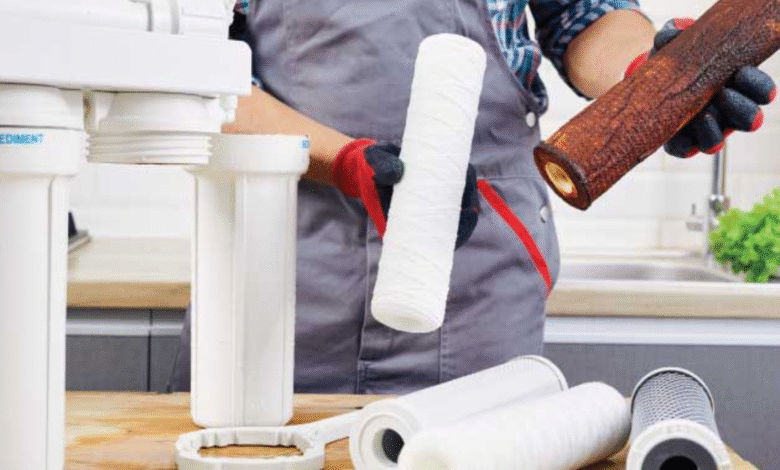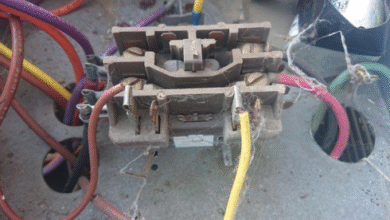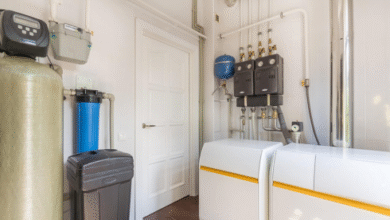When Your Tap Smells Like Rotten Eggs: A Real Talk on Sulfur Water and How to Deal With It

If you’ve ever turned on the faucet, filled a glass, and been hit with a pungent whiff of rotten eggs, you’re not alone. That distinct smell—like sulfur, or more specifically hydrogen sulfide gas—can turn the simple act of pouring a glass of water into something you’d rather avoid. And here’s the thing: it’s more common than most people think. Rural homes with wells deal with it all the time, but even city water systems occasionally carry those unpleasant odors.
The real challenge? That smell isn’t just about comfort; it’s a signal of what’s happening in your water. And while it’s not usually dangerous at low levels, it’s not exactly something you want sticking around either. Let’s dive into what’s going on, and more importantly, how to get back to fresh, clean-tasting water.
Why Does Water Smell Like Sulfur in the First Place?
The culprit is usually hydrogen sulfide gas, which occurs when organic matter decays or when certain bacteria thrive in underground wells and plumbing systems. Some hot water heaters even make the problem worse because their magnesium anode rods react chemically and release sulfur gas.
What you end up smelling isn’t your imagination—it’s chemistry at work. That distinctive rotten egg smell tends to be strongest when you first turn on the faucet, especially with hot water. If you notice it mostly in the hot water line, it’s probably your heater. If it’s all over the house, the issue may be deeper in your plumbing or the source water itself.
And here’s where it gets interesting: while not usually toxic at household levels, high concentrations can corrode pipes, stain laundry, or just make drinking water feel unappetizing. It’s the kind of problem that lingers until you address it head-on.
People in the water industry often refer to this as dealing with sulfur odor in water treatment, and trust me, it’s one of the most asked-about issues from homeowners.
The “DIY or Call a Pro” Dilemma
Now, some folks go straight to the internet, hunting for quick fixes—bleach shock treatments, water softeners, carbon filters. And yes, sometimes those work temporarily. But the truth is, sulfur in water is a stubborn guest. It doesn’t leave politely after one knock on the door.
For example, if bacteria in your well are causing the odor, shocking it with chlorine might knock them out for a while, but they often come back. If the water heater is the culprit, replacing the magnesium rod with an aluminum one can make a world of difference. But without knowing the exact source, you’re basically guessing.
That’s why many homeowners eventually reach the point where they think: “I need a long-term fix, not a patch.” This is when professional testing and targeted solutions step in.
I once heard a neighbor joke that he tried every DIY trick he could find online, only to spend more money in the process. Finally, he brought in a specialist, and within a week, the smell was gone for good. Sometimes, peace of mind is worth the call.
What Real Solutions Look Like
A proper fix starts with figuring out whether the issue is in the well, the plumbing, or the water heater. From there, the treatment options vary:
- Shock Chlorination: A strong dose of chlorine disinfects the system. Works in some cases but isn’t a forever solution.
- Activated Carbon Filters: These absorb sulfur gases, improving taste and smell.
- Aeration Systems: Expose water to oxygen, which neutralizes the hydrogen sulfide.
- Oxidizing Filters: Use substances like manganese greensand or catalytic carbon to remove sulfur effectively.
- Water Heater Adjustments: Swapping anode rods or flushing tanks can solve heater-specific odors.
It’s not always a one-size-fits-all situation. Sometimes, a combination of methods works best. And if your water smells especially strong, chances are you’ll need more than a basic filter.
At this stage, many homeowners go looking for what they call a rotten egg smell water fix, because that’s exactly what it feels like—a problem begging for the right cure.
Why Professional Help Matters
There’s a reason whole industries exist around water treatment. Professionals don’t just guess; they test. They’ll check your well, pipes, and heater, measure sulfur levels, and recommend systems tailored to your home. That level of detail often saves money in the long run compared to buying random filters that may or may not help.
Plus, pros can help with installation and ongoing service. That matters because some systems—like aerators or oxidizers—need regular maintenance. Without it, the smell creeps back, and you’re right back where you started.
Calling in a sulfur water removal service isn’t about overcomplicating things; it’s about fixing the problem once and keeping it gone. Imagine never having to wrinkle your nose again when you pour a glass of water. That’s the kind of quiet luxury that makes daily life smoother.
Living Without the Smell
At the end of the day, clean water isn’t just about health; it’s about quality of life. No one wants to serve guests coffee made with smelly water or worry that their laundry will come out with stains. And you certainly don’t want to avoid drinking from your own tap because it feels unappealing.
Fixing sulfur odors in water is one of those investments that pays you back every single day, sip after sip. And while it can be frustrating to track down, the good news is that the solutions exist, they’re proven, and they really do work.
So, the next time you catch that unmistakable rotten egg smell, don’t panic. Take it as a nudge that your water is asking for a little attention. With the right approach—whether it’s a small DIY tweak or professional treatment—you can bring your water back to the fresh, clean standard it should always be.




